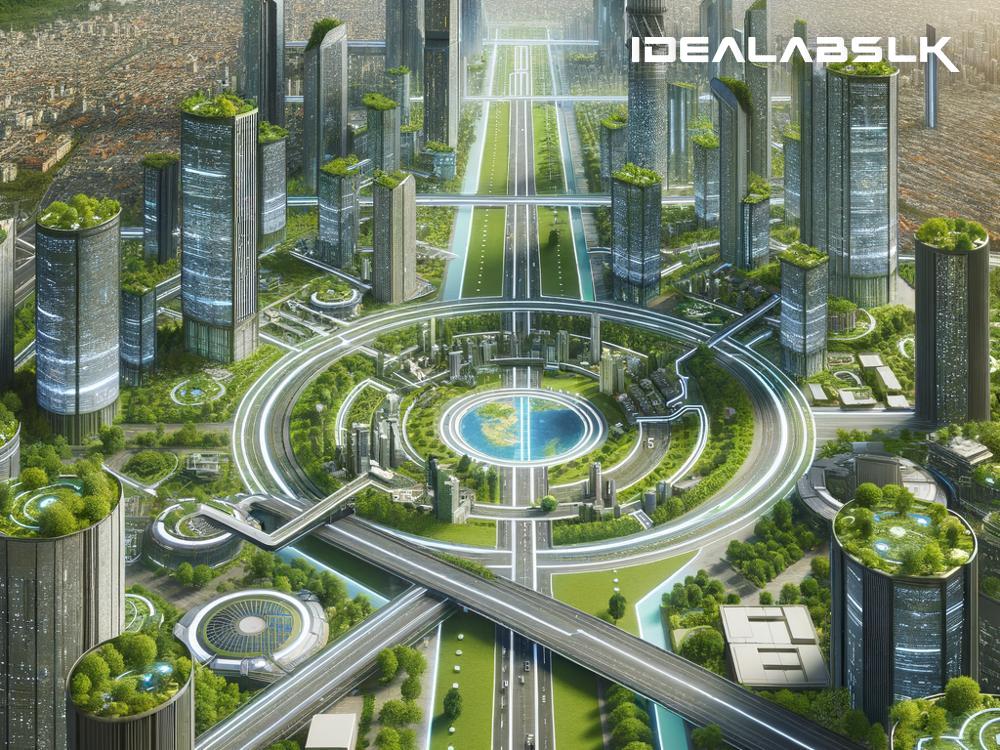Blockchain and AI: Powering Sustainable Real Estate Development
In recent years, two buzzwords have dominated technology discussions: blockchain and artificial intelligence (AI). While these technologies have been revolutionary on their own, their combination promises an even more transformative potential, especially when applied to sectors like real estate development. Let's dive into how these technologies are not just reshaping the real estate sector but also steering it towards more sustainable practices.
Understanding the Basics
Before we delve deeper, let's quickly understand what these technologies are. Blockchain is a secure, transparent, and decentralized way of recording information. It is the technology behind cryptocurrencies like Bitcoin. Imagine a ledger that is not owned or controlled by any single entity but is instead distributed across several computers. This ensures that the data recorded is nearly impossible to tamper with.
On the other hand, AI involves creating computer systems that can perform tasks typically requiring human intelligence. This includes learning from data, making decisions, and solving problems. From Siri on your iPhone to more complex algorithms predicting stock market trends, AI is all around us.
Now, how are these technologies impacting sustainable real estate development?
Smarter Planning with AI
Sustainable development is all about creating spaces that are environmentally friendly, economically viable, and socially inclusive. AI helps in the planning phase of real estate projects by analyzing vast amounts of data to predict future trends. This could mean understanding the optimal use of a site to maximize sun exposure for solar panels or analyzing traffic patterns to create more efficient public transportation links.
AI can simulate and analyze multiple planning scenarios rapidly, helping architects and planners choose the most sustainable options. For example, AI algorithms can predict how different building orientations can impact energy consumption, helping to design buildings that require less energy for heating or cooling.
Transparent Transactions with Blockchain
The process of buying and selling property is often opaque, with a lot of paperwork and middlemen involved. Blockchain can revolutionize this process by making it more transparent, secure, and efficient. Each transaction can be recorded on a blockchain, providing a clear history of the property that anyone can check. This can significantly reduce fraud and make the buying process smoother and faster.
Moreover, blockchain can facilitate "smart contracts", contracts that are automatically executed when certain conditions are met. In a real estate context, this could mean automatically transferring ownership once payment is confirmed, without the need for intermediaries. This not only saves money but also reduces the carbon footprint associated with traditional paper-based processes.
Efficient Energy Management
Blockchain and AI combined can lead to more efficient management of resources within buildings. Consider a smart building equipped with IoT (Internet of Things) sensors that collect data on energy usage, temperature, and occupancy in real-time. AI algorithms can analyze this data to optimize energy consumption, for example, by adjusting heating or lighting based on whether a room is occupied.
This data can also be recorded on a blockchain to ensure it is tamper-proof and can be transparently shared with all stakeholders, including tenants and energy companies. This fosters trust and collaboration in the pursuit of sustainability goals.
The Path to Greener Urban Landscapes
By enabling more efficient use of resources, ensuring transparency in transactions, and facilitating smarter planning, blockchain and AI are powerful tools in the quest for sustainable real estate development. However, their potential goes beyond just making buildings greener.
For instance, these technologies can help create more resilient urban environments that can better withstand climate change impacts. They can also foster the development of 'smart cities', where everything from traffic to waste management is optimized for sustainability.
Challenges Ahead
While the potential is enormous, there are challenges, including the digital divide, regulatory hurdles, and privacy concerns. Ensuring these technologies benefit everyone and are used responsibly is crucial.
Moreover, the real estate sector must be willing to embrace change and invest in these technologies. While upfront costs can be significant, the long-term benefits - both financial and environmental - make a compelling case.
Conclusion
Blockchain and AI are more than just trendy buzzwords; they are tools that can significantly contribute to sustainable development goals. By making real estate development more efficient, transparent, and smart, we can hope to see a future where our built environment complements rather than compromises our natural one. The journey towards sustainable real estate is complex, but with the power of these innovative technologies, it is definitely within reach.

